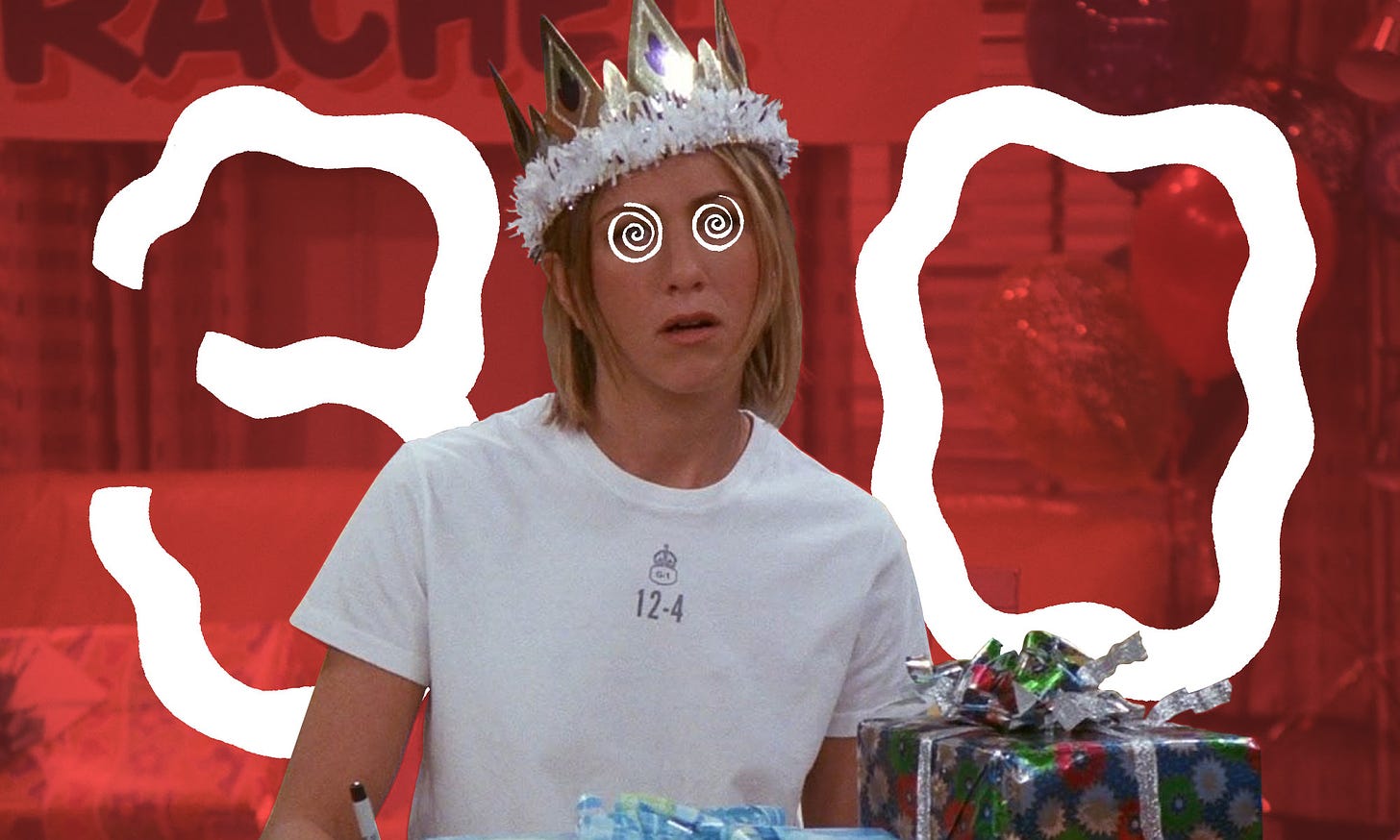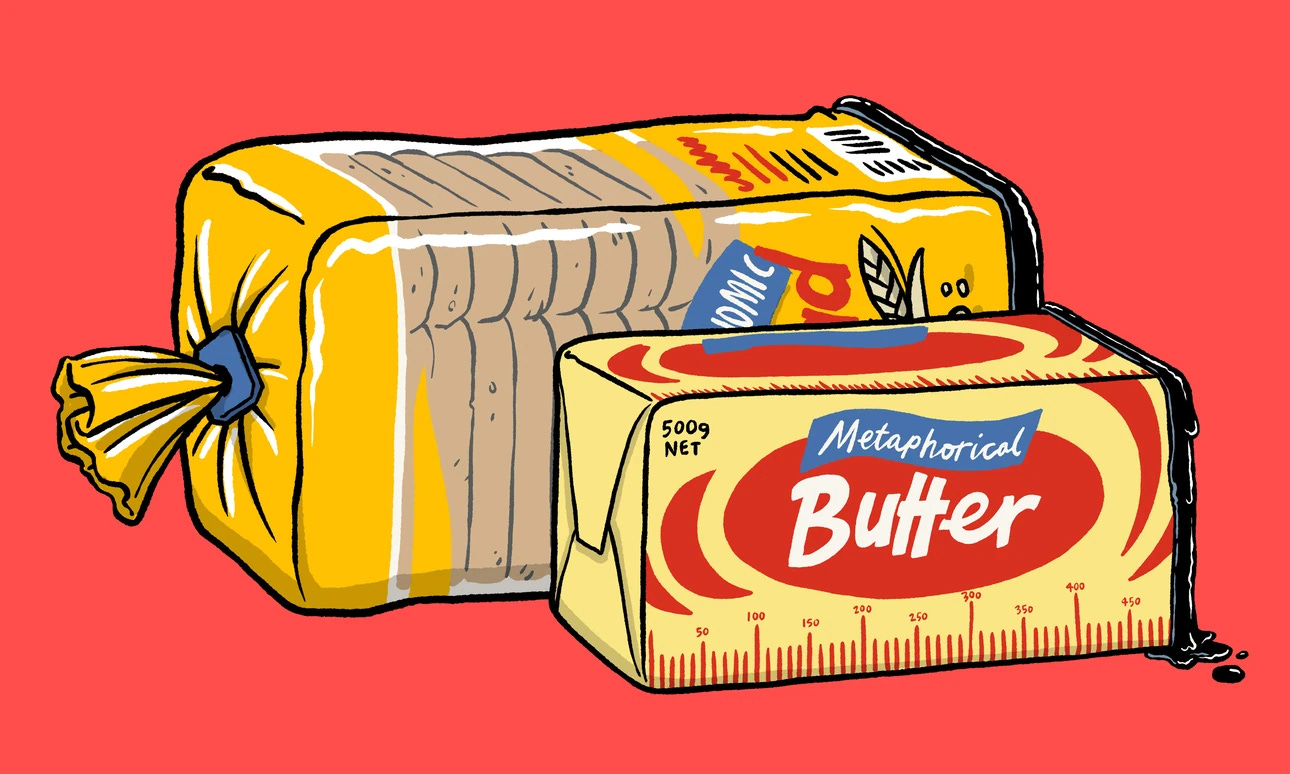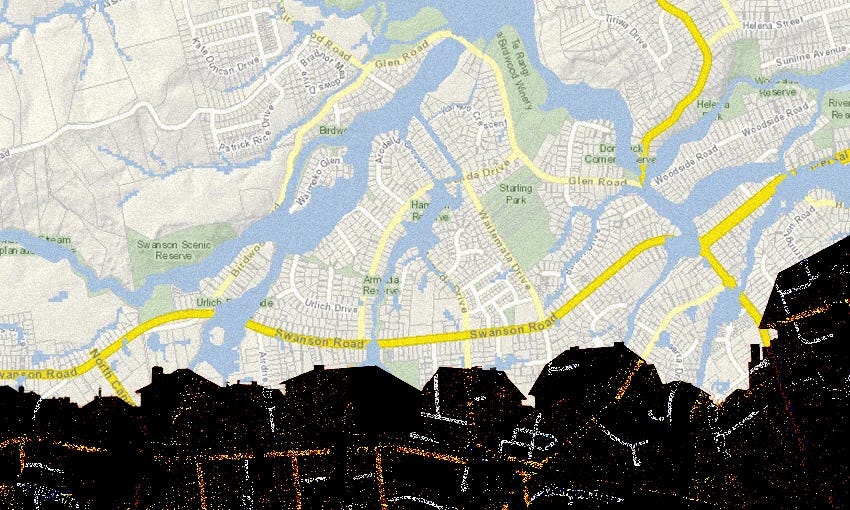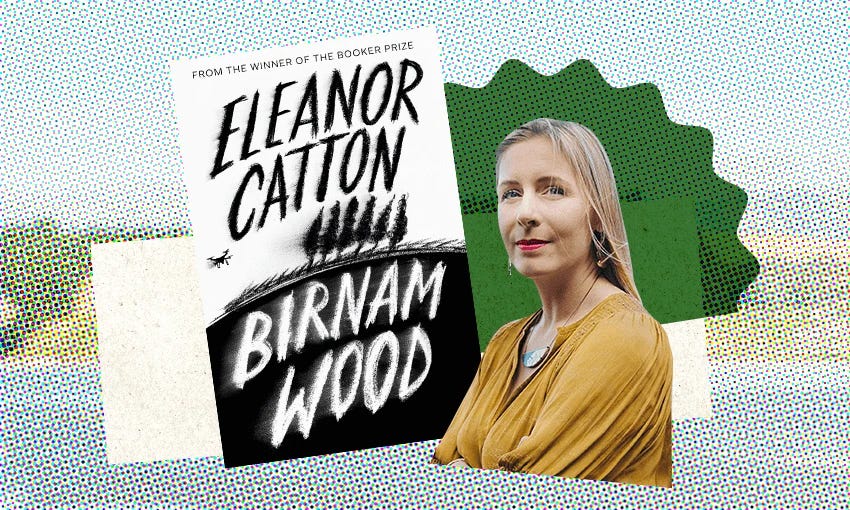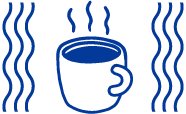Turning 30 is something that happens to other people
Also: having our bread and butter and subsidising its transport too
Kia ora and welcome to The Weekend. In Tāmaki Makaurau, a cyclone is forecast: we have tips to make sure you are logistically and emotionally prepared for disasters, no matter where you live. But there are other morsels (links) to peruse while you consume your weekend Coffee Supreme; I’m always partial to some birthday-related existential angst, which Sharon Lam provides. And I’m planning to make some sourdough and focaccia this weekend. While Toby Manhire has worked out how much subsidised fuel contributes to a plastic-bag loaf, it remains to be seen how it affects the cost of bread made at home.
-Shanti Mathias, staff writer
The hard lessons of turning 30
Image: Toby Morris
Sharon Lam has always known that a 30th birthday is supposed to be a Big Deal. Luckily it seemed far away: “I would be 81 before I was 30,” she thought. But time comes for us all. “Here I am, in the year 2023, 30 years after my first wailing breath,” she writes. In an essay on The Spinoff this morning, Lam contemplates whether this is the best or the worst of all possible worlds to be turning 30 in. There are some points in both columns, true. But when in doubt, take your cue from seminal romcom 13 Going On 30 and remember: being a child again is only a TV show and some McNuggets away.
Introducing the Coffee Supreme Iced Coffee range. Roasted for flavour, cold-brewed for taste and canned for convenience —good times by the can are here. Perfect for those rushed mornings, sunny arvos or when you’re packing the chilly bin. Available online by the 4-pack now or by the can at your local cafe who uses Supreme. Grab yours.
Will artificial intelligence transform universities?
It’s completely understandable to see the letters “AI” and feel your brain immediately disengage. But whether you want to or not, nearly every search you do on Google and Bing will soon include text written by AI tools, even if the information they come up with is sometimes wrong. The issues with AI go beyond googling: increasingly competent and accessible AI writing poses existential questions about what academic learning means, while giving students an opportunity to pass off AI content as their own. Are universities worried? Well, they’re certainly thinking about it. I talked to academics and student representatives about the impact of AI on campuses, now and into the future.
How much does fuel contribute to the cost of bread and butter?
Prime minister Chris Hipkins has been loud about getting the country back to “bread and butter” issues as part of Labour’s policy reset. One of those policies is the extension of the fuel subsidy until the end of June, and the removal of a biofuel mandate. But – to take the PM’s rhetoric entirely literally – how much does the cost of fuel contribute to the cost of bread and butter? Toby Manhire runs the numbers (on the back of an envelope), takes some stabs in the dark, makes some educated guesses, and shows his working to come up with a (mostly arbitrary) number.
What impact do floods have on Aotearoa’s food supply?
The Spinoff's independent, homegrown journalism is only possible because of the support of our members. Their generous donations power all our work and help keep it freely available to all. Tautoko The Spinoff this year by becoming a member, making a new donation or encouraging your organisation to donate.
The truth about new housing and Auckland’s floods
I try not to make this newsletter too Auckland-centric, but while Tāmaki Makaurau has borne the brunt of flooding lately, building urban spaces that are resilient to floods is an urgent issue across the whole motu. Hayden Donnell has a look through flooding zones and dense housing locations and finds a surprising amount of overlap. He asks: why are councillors in Auckland quibbling about new housing in general, instead of campaigning for it to be built in safer, less flood-prone areas like, say, Ponsonby and Parnell?
The floods in Auckland took the city back in time
Birnam Wood is on the move
New Eleanor Catton! New Eleanor Catton! The Spinoff is extremely excited about the new book from our homegrown Booker winner. Books editor Claire Mabey has a glowing review of Birnam Wood, a novel about the tangled desires of billionaires and environmental activists at the ends of the earth (i.e. New Zealand). “It asks whether we have, as a species at large, the survival instincts required to withstand an alarming new breed of technology-fuelled predation; whether we have the instincts to respond adequately to the warnings signs, environmental and political, that fight for our attention every day,” she writes. Personally, I’m looking forward to Birnam Wood joining the collection of Big Deal Books I want to read this year.
The Spinoff and Boring Oat Milk with support from Coffee Supreme proudly present Boring Breakfast, tackling crucial questions facing the Aotearoa kai and hospitality sectors. Hosted by Sophie Gilmour, the first instalment of Boring Breakfast will welcome guests Morgan Maw (Boring Oat Milk) and Tom Hishon (Orphans Kitchen, kingi, Daily Bread) for a kōrero around sustainability in our food and hospitality sectors. We’ll touch on everything from environmentally friendly sourcing to sustainable product packaging. Are our current approaches doing enough, or are more radical ideas required? We have tickets to give away to Weekend subscribers! First in, first served. RSVP at commercial@thespinoff.co.nz.
Everything else
An extremely interesting and moving obituary of the last nizam of the state of Hyderabad.
Why scrapping the $5 prescription fee would actually save the government money.
The Adani/Hindenberg scandal is 100% the juiciest story in international business right now.
How it feels to wake up from a nap to find your house filled with water.
What next for TVNZ and RNZ after the demise of the merger?
Yes this Vice article has convinced me to finally watch Girls, but I’m not sure that I can survive the cringe past a few episodes. (My boyfriend: “I don’t know why you’d watch a show with such a dull name”).
How to deal with ecoanxiety following a natural disaster.
I really enjoyed this interview with Australian prime minister Anthony Albanese about the realities of leading a government and the upcoming Indigenous voice to parliament referendum. Also a great insight into what it’s like trying to pin down politicians in an interview.
The end of Netflix password sharing has come :(
Shortland Street is darker and grittier as the show embraces the unexpected.
A seismologist explains the Turkey/Syria earthquake, before and after satellite pictures showing the scale of the collapse, and ways you can help.
How reviving public libraries could transform Nairobi.
A wonderful comic about going on school visits as an illustrator.
Why was Joe Cotton dressed like Harley Quinn on Celebrity Treasure Island?
Fun and wild sciency article about the bizarre qualities of water.
You can tell the writer of this very negative review in Pitchfork had a lot of fun.
Author I.S. Belle and I were both obsessed with spooky YA about tight knit groups of friends as teenagers – but only one of us turned our interests into a successful novel.
Organic veggies can be surprisingly cost effective – even imperfect, wonky ones
How car-centric language colonises our thinking.
I have mixed feelings about Salman Rushdie’s books but this New Yorker profile written as he recovers from being stabbed was definitely fascinating. More: How it felt to be a bookseller in the middle of the Satanic Verses panic.
What is the appeal of the tradlife to the tradwife?
And finally, this week I’ve been obsessed with the rhythmic vocals in this album:





